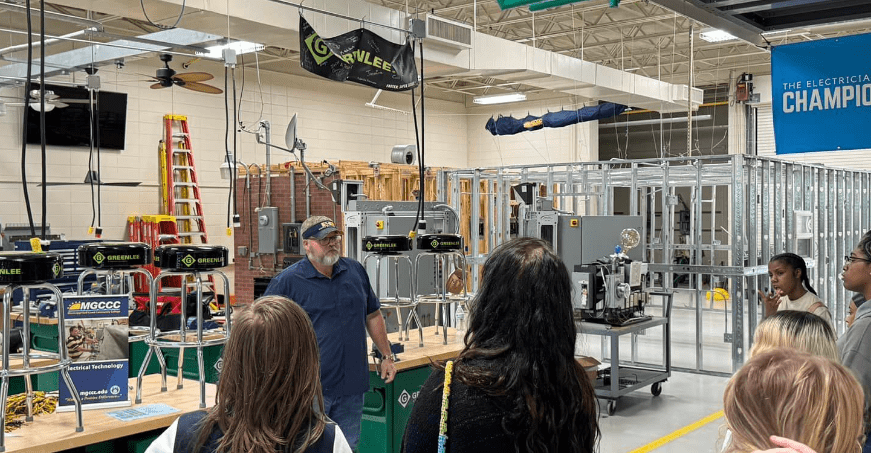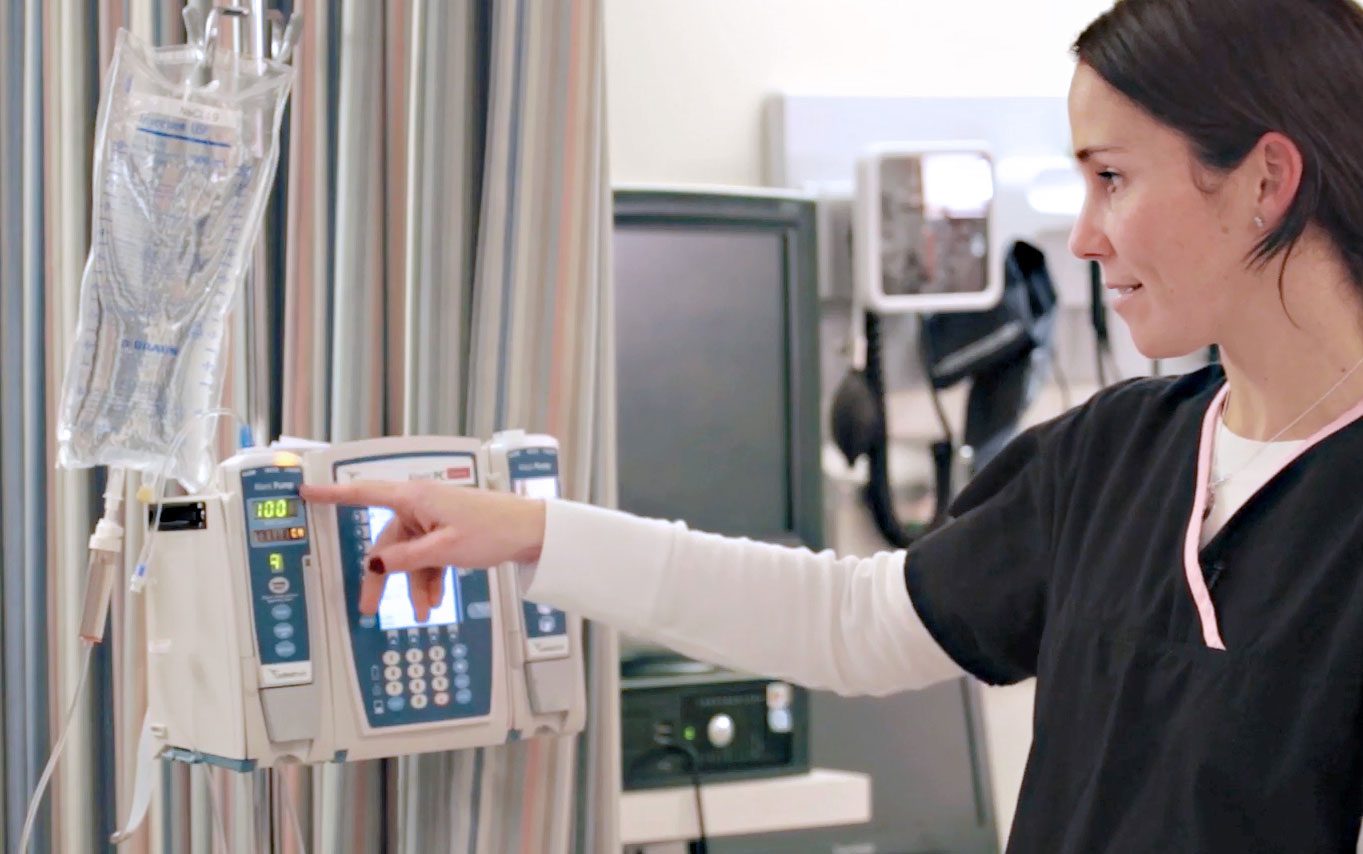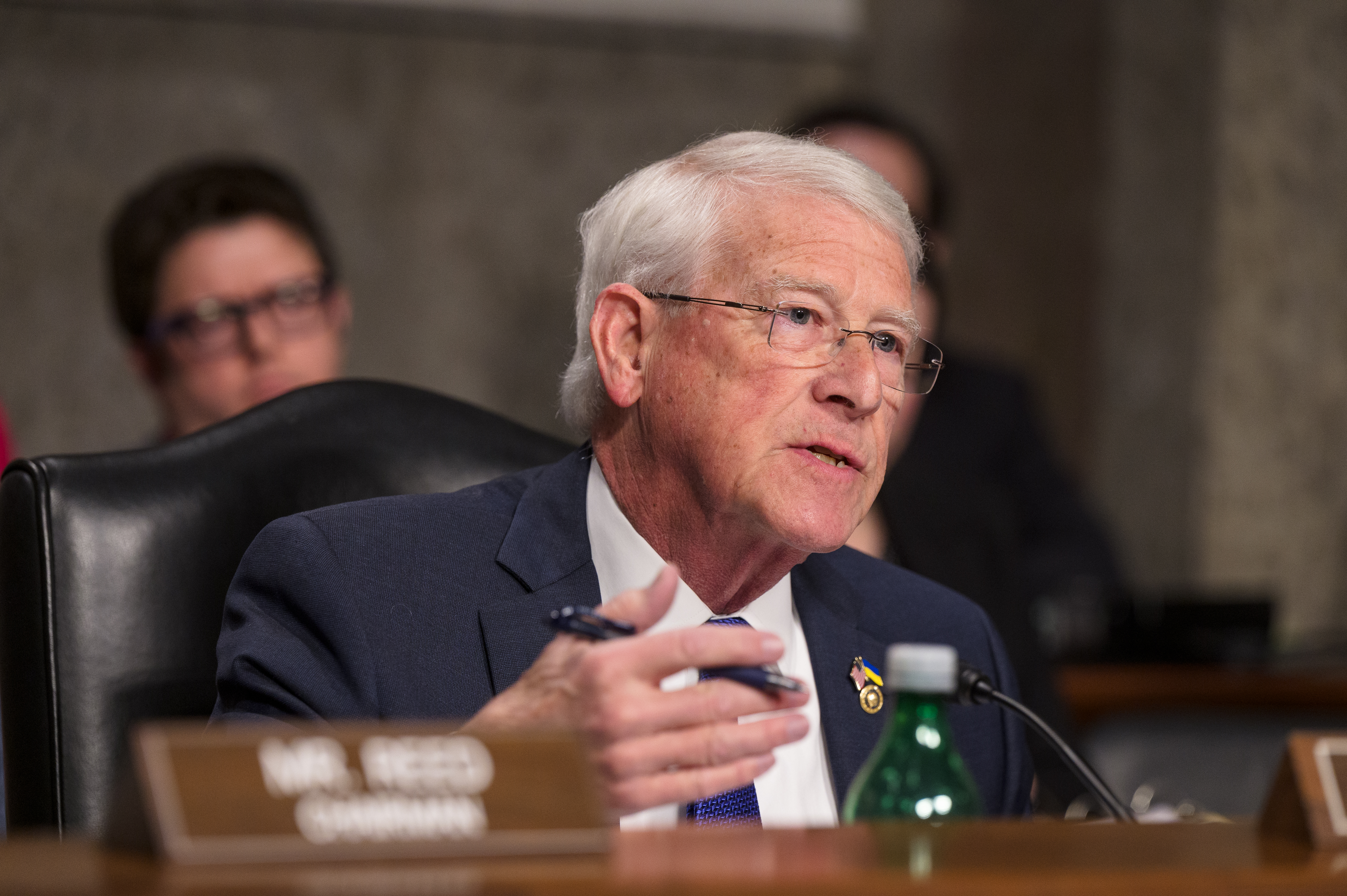
(Photo from the CTE program at Pascagoula High School via Facebook)
- State Director Brett Robinson discusses the challenges and importance of CTE in the Magnolia State. Learn which industries are most in demand.
As more of today’s young people opt for schooling outside the traditional college experience, many are flocking to career and technical education (CTE), which help students develop marketable skills and earn national industry certifications needed to achieve their career goals.
In 2022-23, close to 10,000 Mississippi high school students were CTE concentrators, which means they completed at least two CTE courses in the same field of study. CTE programs are offered at more than 500 schools and 15 community colleges in 49 distinct occupational areas. CTE graduates had the state’s highest average completion rate of 99.5 percent for the 2022-23 accountability year.
CTE State Director Brett Robinson with the Mississippi Department of Education recently spoke with Magnolia Tribune about the evolvement, importance, and challenges of CTE programs to Mississippi’s youth and Mississippians at a later age changing careers.
CTE has evolved from vocational education that covered mostly agriculture, homemaking, and trade and industrial education starting 125 years ago, to now 16 different Career Clusters that include 79 career paths and hundreds of different careers requiring varying levels of education. Can you give us a Mississippi snapshot?
Mississippi currently offers 44 CTE skill pathways encompassing 15 of the 16 national career clusters. We also offer eight enhancement courses and four computer science courses at the middle school level. In the 2023-24 school year, over 70,000 Mississippi 7th – 12th grade students were enrolled in a CTE course. (See curriculum offerings in the box below.)
How have CTE programs evolved over the last four years to meet the workforce needs in Mississippi?

Our curricula are driven by input from all stakeholders, including business and industry professionals, state workforce groups, labor market data, postsecondary, and local districts. Our goal is to provide students with access to career pathways that represent Mississippi’s high demand, high skill, and high wage sectors. To ensure we do this, all CTE curricula is on a 2-to-3-year revision cycle. Additionally, based on statewide needs assessment data, we’re actively working to add new curricula in the areas of aviation and cybersecurity.
What kinds of careers, from the most popular to the most unusual, are available to CTE students in Mississippi? I understand that nationwide, careers range from livestock geneticist to nuclear engineer.
There are a multitude of career options available to high school CTE students and additional efforts are being made to work with the Department of Labor and business/industry to further expand access.
Which industries are most in demand for CTE students in Mississippi?
Accelerate MS (Mississippi’s Office of Workforce Development) has identified five priority workforce sectors for Mississippi:
- Healthcare
- Advanced Manufacturing
- Information Technology
- Logistics and Construction
- Energy
We provide courses and training directly related to all five sectors. Our programs are aligned for smooth transitions to postsecondary level so students can have access to additional training opportunities after high school.
I understand nationwide challenges to the CTE community include chronic underfunding and teacher shortages. How are you faring in Mississippi? What do you need from the business community?
As with most states, our biggest challenge is overcoming the negative stigma associated with CTE. As you mentioned earlier, there have been significant changes as vocational education has evolved into CTE. Many people still view our program/course offerings as those only for students who struggle academically, have behavior issues, and/or aren’t going to college. That simply isn’t the case anymore. Success in these high skill, high wage, and high demand programs requires students to have strong foundational knowledge in English Language Arts and mathematics. We’re working closely with our partners to try and change the narrative associated with CTE. It’s been a tremendous help to see our state leaders in the legislature place a larger emphasis on CTE and its positive impacts on students and workforce development across the state.
Do some CTEs transfer to college credits?
Yes, we have several districts that partner with their local community college to offer dual credit CTE courses. We also work closely with the Mississippi Community College Board to ensure the programs we offer align to community college CTE and training programs. Our goal is to provide students with training that can lead to potential employment opportunities after high school or directly to a related CTE program at the community college level.
How does the CTE program differ from other programs in the state, like Build MS?
We contract with Build MS (formerly known as MCEF) to oversee our construction and manufacturing related programs across the state. They provide us with invaluable guidance to our districts related to their expertise in these areas. We also work very closely with Accelerate MS, Mississippi Economic Council, Ascent to 55, and other state agencies/groups to ensure what we offer and how it’s aligned to industry needs.
Mississippi Career and Technical Education (CTE) Career Pathways
- Agriculture, Food and Natural Resources
- Agricultural and Natural Resources
- Agriculture Power and Machinery
- Aquaculture
- Diversified Agriculture
- Food Products (Meats)
- Forestry
- Horticulture
- Architecture and Construction
- Architecture and Drafting
- Carpentry
- Electrical
- Heating, Ventilation, Air Conditioning, and Refrigeration (HVACR)
- Arts, Audio-Video Technology and Communications
- Digital Media Technology
- Multimedia
- Simulation and Animation Design
- Television Broadcasting and Production
- Business, Marketing and Finance
- Education and Training
- Health Science
- Hospitality and Tourism
- Human Services
- Education and Training
- Educator Preparation
- Health Science
- Healthcare and Clinical Services
- Sports Medicine and Therapeutic Services
- Hospitality and Tourism
- Culinary Arts
- Lodging, Hospitality and Tourism
- Human Services
- Barbering
- Cosmetology
- Early Childhood Education
- Natural Hair Care and Braiding
- Information Technology
- Information Technology
- Software Development
- Law, Public Safety, Corrections and Security
- Law Enforcement
- Law and Public Safety
- Fire Science
- Manufacturing
- Advanced Manufacturing
- Furniture Design and Manufacturing
- Industrial Maintenance
- Instrumentation Technology
- Metal Fabrication
- Precision Machining
- Shipbuilding Academy
- Welding
- Science, Technology, Engineering and Mathematics
- Energy Technology
- Engineering
- Polymer Science
- Transportation, Distribution and Logistics
- Automotive Service Technician
- Collision Repair Technician
- Diesel Service Technician
- Logistics and Supply Chain
- Unmanned Aircraft Systems











